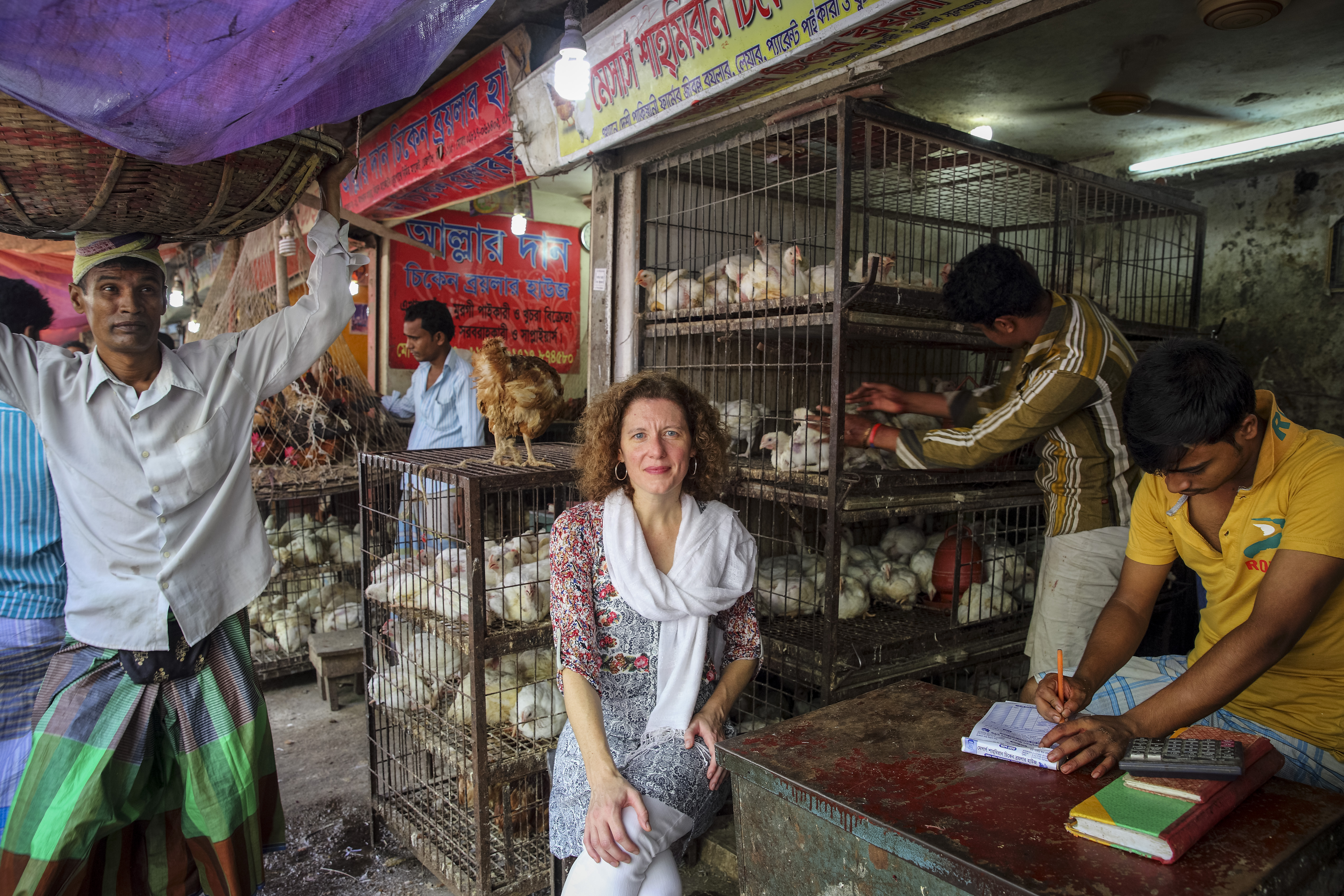Handwashing works! And icddr,b has the research to prove it
|

Water, sanitation and hygiene (WASH) interventions are key to preventing diarrheal diseases. Handwashing is an easy way to prevent diarrhea, but is not always practiced. How can we improve the practices of people in countries where diarrheal diseases remain prevalent? To get some answers, we spoke with Dr. Emily Gurley, an infectious disease epidemiologist who is currently acting as the director of icddr,b's Centre for Communicable Diseases.
Why is icddr,b's WASH work significant in the context of Bangladesh? And globally?
The burden in Bangladesh from diseases and conditions that can be prevented by WASH interventions is considerable—everything from diarrhea to respiratory illness could be prevented through more sanitary and clean environments. While diarrhea may be a minor inconvenience in some places, in many countries it kills. Bangladesh is infamous for its high burden of diarrheal disease.
icddr,b's WASH research is committed to finding and testing interventions such as handwashing and other good hygiene practices that can drastically improve health outcomes in Bangladesh and beyond, by creating evidence that WASH interventions work, and how they can be brought to scale in setting where people don't always have access to safe water. Even at the global level, the evidence generated by our research could help identify key interventions to improve global health outcomes. This is particularly relevant in the new Sustainable Development Framework where one of the Global Goals is dedicated to ensuring access to water and sanitation for all.
Research doesn't always prove the success of an intervention: we also have conducted research which proves that interventions in WASH aren't always as effective as initially thought. This does, however, not mean that the intervention was a failure! There are valuable lessons learned that we can take home from this type of research, and that helps us develop interventions which are more effective and scalable.
What makes handwashing so important?
According to the WHO, each year there are an estimated 1.7 billion cases of childhood diarrhea worldwide. Handwashing with soap before preparing and eating a meal is the best way to keep families safe and healthy. Our studies on handwashing practices in Bangladesh have shown that the presence of water in close proximity to the home doubles the probability of handwashing. We know that washing your hands - even briefly - with water before handling, preparing and eating food can significantly reduce the incidence of diarrhea. Incidence is even further reduced when there is also soap available: almost 50% according to some estimates! In addition, handwashing can also prevent the spread of other diseases, if done properly.
Given its effectiveness, why is handwashing still not common practice in many rural areas?
We have a study going on right now in an urban area north of Dhaka - our experiences there build upon the evidence that, while there is knowledge about the importance of handwashing, it is still far from becoming a habit. The point of the study is to look at how households cope with water scarcity, and how their access to water is related to hygiene-related behavior, not just hand washing, but also bathing, washing clothes and dishes, cleaning households etc. If you have a ready access in at least one part of
your house to a tap that always has clean running water, and you can afford a bar of soap, why wouldn't you clean your house every time it is dirty? If you have to bring water by bucket into your house to use for everything, you probably want to use that water for handwashing less often because it is so precious.
How can we use that knowledge to change behavior?
Education of the persons preparing and providing the food - in particular mothers, is very important. By demonstrating good hygiene practices, they will also teach their children and other people in the household to practice handwashing and other good hygiene habits. However, there is still the question of access to water and soap. Despite there being broad knowledge of the benefits of hand-washing, it is still not widely practiced if access to water and soap is limited. Our studies show that the best indicator for frequent handwashing is if they actually have a place in their house that has clean water and soap.
What are some key hygiene and sanitation messages you would like to share with our readers to encourage handwashing interventions?
WASH interventions are particularly important in those areas where environmental factors make it difficult to maintain a high standard of sanitation. At the same time, they are an essential component of an improved quality of life where, as countries progress from low-income to middle-income societies, the sanitation and hygiene conditions improve—as with Bangladesh over the years.
There is also a strong need for promoting the measurement of effectiveness of WASH interventions. By generating evidence of the benefits of WASH in combination with other interventions such as in nutrition, we hope that we can encourage policy and decision makers as well as implementers to adopt integrated policies and programs to maximize health outcomes.
All humans need fresh, clean water - reduced access to it leads to disease, forced migration, loss of crops and food security. It is just so central to everything that a society needs to thrive.














